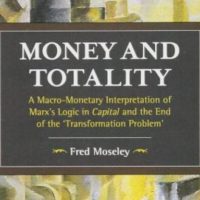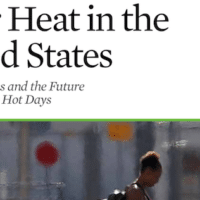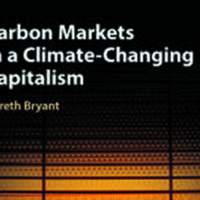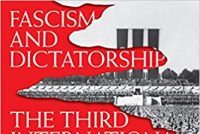-
‘Value and Crisis’ by Alfredo Saad-Filho reviewed
It is very common for leftist commentators to use the term ‘neoliberalism’ in their analysis of a political situation or social struggle. The term is frequently used in socialist political economy, cultural studies, and even mainstream liberal newspapers.
-
Soviet Archaeology in Theory and Practice
A Review of Ancient Irrigation Systems of the Aral Sea Area: The History, Origin, and Development of Irrigated Agriculture by Boris V. Andrianov, and Soviet Archaeology: Schools, Trends, and History by Leo S. Klejn
-
Corinna Lotz – Finding Ilyenkov: How a Soviet Philosopher Who Stood Up for Dialectics Continues to Inspire
Corinna Lotz’ Finding Ilyenkov can be read in a few hours, but for those readers taken with its ideas and appeal to the relevance of Ilyenkov’s life and theory, this book provides a salient and fecund starting point for any variety of in-depth engagements relating to Ilyenkov, dialectical materialism and creative Soviet Marxism.
-
Antifa: the anti-fascist handbook – book review
The long history of anti-fascist mobilisation, outlined in Bray’s Antifa, underlines the importance of broad alliances for mass mobilisations, argues Thomas Gibbs.
-
Review of Money and Totality by Fred Moseley
Today, as the global economy flounders from crisis to crisis, Marx’s analysis of capitalism is the essential basis for a correct understanding of what is going on. Moseley’s book reaffirms key elements of this analysis.
-
Henry A. Giroux and the culture of neoliberal fascism
HENRY A. GIROUX’s book The Terror of the Unforeseen analyzes the conditions that have enabled and led to Donald Trump’s rule and the consequences of that rule, that have ushered in an authoritarian version of capitalism. Giroux provides a realistic analysis that holds out the hope that, through collective efforts, change is possible and democracy can be saved.
-
Review: Marx/Engels – Gesamtausgabe
Was Marx an ecologist and does Marx’s theory offer a coherent theoretical and practical approach for ecologists in the 21st century? The publication of Marx’s excerpts and notes on ecology from the mid-1860s may help to answer that question.
-
Marxism and the philosophy of science
Marxists are primarily known for their concern with the development of human society and political struggle. As materialists, however, Marxists necessarily look to developments in science and new ways of understanding the material world.
-
Live from Nicaragua: Uprising or Coup? A Reader
Behind much opposition violence stood U.S. regime-change NGOs.
-
Killer heat in the United States: Climate Choices and The Future of Dangerously Hot Days
Extreme heat is poised to rise steeply in frequency and severity over the coming decades, bringing unprecedented health risks for people and communities across the country.
-
How to Read Donald Duck: Imperialist Ideology in the Disney Comic by Ariel Dorfman and Armand Mattelart
Originally published in 1971 in Chile to intense opposition from the right-wing media, in How to Read Donald Duck: Imperialist Ideology in the Disney Comic, Ariel Dorfman and Armand Mattelart offer a cultural critique of Donald Duck comic strips, showing them to be far from benign products of the U.S. cultural industry.
-
A historian’s view of post-fascism
Whatever we are facing [in world politics], it is not twentieth-century fascism. Hell keeps on disgorging new demons to beset us. And as seasoned exorcists know, each must be called by its proper name before it can be cast out.
– (possibly J. R. R. Tolkien’s Gandalf) -
Our globe is burning!
Peter Linebaugh’s book comes with a long subtitle, a pithy summary of its contents: A Tale at the Crossroads of Commons and Closure, of Love and Terror, of Race and Class, of Kate and Ned Despard. His timeframe is the period between 1789 and 1804 when, in his view, a series of connected events took place in England, Ireland, France, the Caribbean and North America that formed an Atlantic crucible forging the capitalist world we have lived in since.
-
Gee Whiz! Communism is sure gonna be keen!
When I was ten years old, I read and re-read a stack of decades-old Modern Mechanix magazines that I found in my grandfather’s basement. Throughout the Great Depression, MM regaled its readers with breathless accounts of technological marvels that were going to change the world, very soon.
-
Carbon markets in a climate-changing capitalism
Carbon Markets in a Climate-Changing Capitalism offers an account of why these earlier expectations were not matched by experience. While the contradictions of market solutions have not gone away, the difference this time is that we are just over a decade away from the IPCC’s 2030 benchmark for 1.5°C. The concentration and centralisation of emissions instead points towards a different pathway that can meet this challenge – one that begins by confronting the disproportionate control the biggest polluters have over our climate future.
-
Heineken In Africa: A Multinational Unleashed – book review
Olivier van Beemen’s meticulous exposure of Heineken’s activities in Africa show the damage done by neo-colonial capitalism, argues Ellen Graubart
-
Watching ‘When They See Us’, as a white woman
In order to really see these boys and their families white people have to see themselves as participatory in racism. So to see their innocence “we” must see our own part, our guilt, our responsibility in the newest forms of slavery, no longer chattel, but carceral.
-
Review of Alan Nasser’s, Overrripe Economy
Alan Nasser has written a masterful book, one that belongs in every serious leftist and socialist library, and one that certainly deserves to be widely and extensively read.
-
An anthropology of Marxism
Beyond its analytical value, Robinson’s account holds great potential as a tool of political praxis. For what Anthropology confronts is the question of how exactly are we to make sense of the cultural and political significance of Europe’s medieval period in our current global moment?
-
Fascism and Dictatorship: The Third International and the Problem of Fascism
In the final stage of fascism, the fascist state has consolidated power and freed itself of its petty-bourgeois class origins. Poulantzas says that this is the most brutal stage, for it involves violent purges at the state level to remove the petty-bourgeoisie, and terroristic repression over the masses.




















